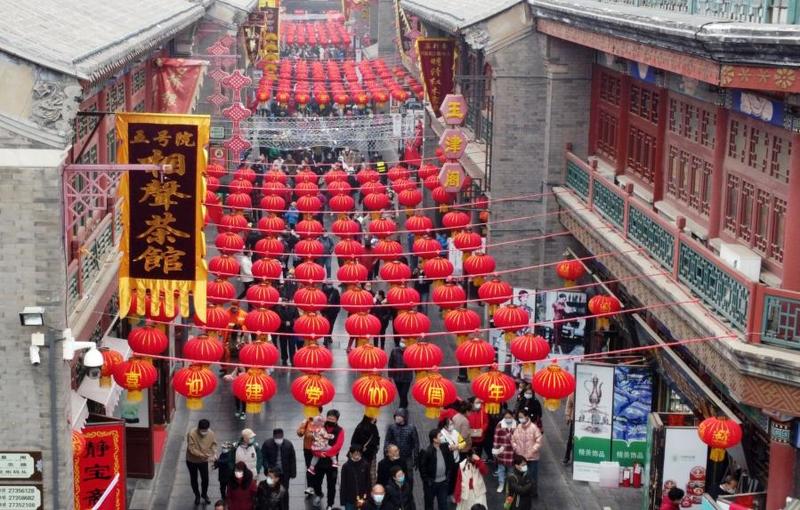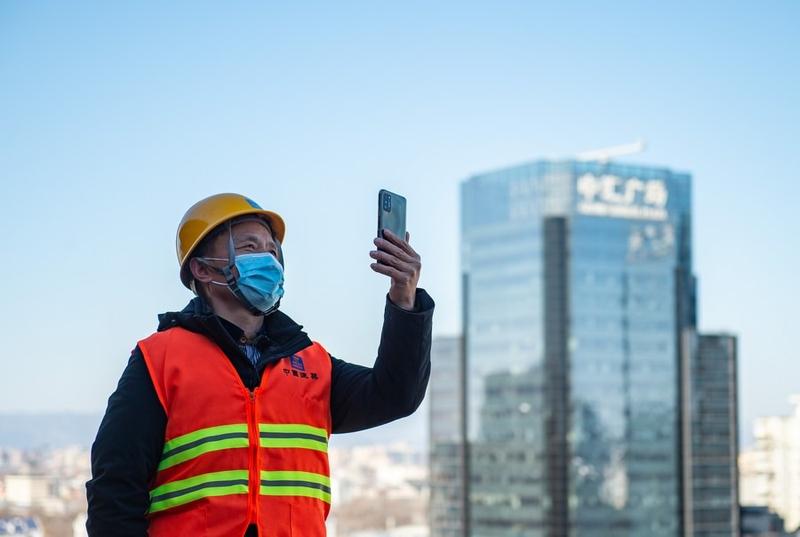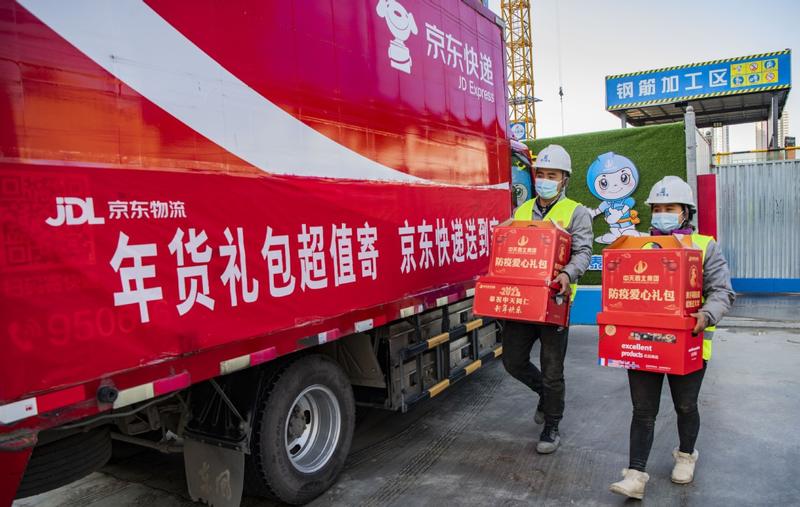 In this aerial photo, traditional Chinese lanterns decorate an ancient cultural street in Tianjin, north China, Feb 13, 2021, the second day of the Chinese Lunar New Year. (ZHAO ZISHUO / XINHUA)
In this aerial photo, traditional Chinese lanterns decorate an ancient cultural street in Tianjin, north China, Feb 13, 2021, the second day of the Chinese Lunar New Year. (ZHAO ZISHUO / XINHUA)
BEIJING - Like millions of Chinese, Yang Weihao has stayed where he is instead of returning to his hometown for the annual Spring Festival, the most important holiday of the year.
"I just sent greetings to my parents via video link, and I am planning to write them a letter later," said the 27-year-old security officer, who comes from north China's Hebei province but chose to stay put in Shanghai, where he works for a state-owned construction company.
Yang said he is too shy to express all his feelings on video and thought it would be better to write them down.
Following the resurgence of sporadic COVID-19 cases this winter, China has encouraged people to stay put for the Spring Festival to reduce the risk of COVID-19 infections during the travel rush
Yi Zhihao also spent the Chinese Lunar New Year eve in Beijing with his girlfriend online. They were not able to get together for the festival as Yi stayed put for the holiday.
"I will convey my best wishes to my family and friends one by one via video chat," said Yi.
Following the resurgence of sporadic COVID-19 cases this winter, China has encouraged people to stay put for the Spring Festival, an important occasion for family reunions that usually sees mass migration across the country, to reduce the risk of COVID-19 infections during the travel rush.
The number of railway passenger trips fell sharply by 68.8 percent year on year in the first 15 days of China's 40-day Spring Festival travel season amid stringent pandemic control measures, data by the national railway operator showed.
ALSO READ: China's Spring Festival travel slumps amid virus curbs
To make up for the loss of family gatherings, holiday parties and get-togethers, many have chosen to send their greetings in a "contactless" way, non-traditional but no less affectionate than face-to-face companionship.
 Migrant worker Gu Benguo makes a video call to his wife at a construction site in Beijing, capital of China, Feb 7, 2021. Gu chose to stay in Beijing during the Spring Festival instead of going back to his hometown in east China's Anhui province. (CHEN ZHONGHAO / XINHUA)
Migrant worker Gu Benguo makes a video call to his wife at a construction site in Beijing, capital of China, Feb 7, 2021. Gu chose to stay in Beijing during the Spring Festival instead of going back to his hometown in east China's Anhui province. (CHEN ZHONGHAO / XINHUA)
Zhao Ting, Yi's colleague in a research lab in Beijing, said she bought everything in her online shopping cart home to show her homesickness.
To meet the demand of people like Zhao, who send "gift parcels" or make online purchases to show love and care for their families and friends living far away, the government has asked e-commerce platforms and logistics companies to ensure normal operations during the period.
On Thursday and Friday, the first two days of the weeklong Spring Festival holiday, Chinese courier delivery firms handled some 130 million parcels, up 223 percent year on year, showed data by the State Post Bureau.
As of Feb 7, China's courier delivery firms had dispatched 10 billion parcels domestically in just 38 days this year, creating a new record. The period is much shorter than the 80 days in 2020 and 79 days in 2019, said the State Post Bureau.
READ MORE: China's Spring Festival deliveries break record
The "stay-put" holiday has kept restaurants and takeaway delivery busy as well. Liu Tao, a deliveryman in the central Chinese city of Wuhan, did not return home either because he wished to take more orders during the holiday.
 In this undated photo, workers at a construction site in Xi'an, Shaanxi province, receive festival gifts from JD. The workers decided not to travel home for traditional Spring Festival family reunions this year amid COVID-19. (YUAN JINGZHI / FOR CHINA DAILY)
In this undated photo, workers at a construction site in Xi'an, Shaanxi province, receive festival gifts from JD. The workers decided not to travel home for traditional Spring Festival family reunions this year amid COVID-19. (YUAN JINGZHI / FOR CHINA DAILY)
Having spoken with his family over phone on the morning of the Spring Festival, Liu said he owes much to his family because he had focused on his job last year.
Sun Zhengguo, a professor at the Central China Normal University, said technological advancement has provided more ways of sending new year's greetings and broke the limitation of time and space to help people convey their feelings.
"The Chinese people's longing for family reunions has never changed, which is the core of the Spring Festival culture," said Sun.
"I hope the Year of the Ox will be a bullish year," Liu said, speaking of his new year wish. "Hope I could make more money and spend more time with my family."


